Third Future Engineer Leadership and Innovation Academy held at CQU
From September 29 to October 13, 2019, the 2019 “Future Engineer Leadership and Innovation Academy” Program (FELIA) of University Consortium on Engineering Education and Research was held at Chongqing University. Totally 27 doctors of China and the UK participated in the Program as selected and recommended by member universities and colleges of FELIA. The FELIA was built up based on the engineering advantages of colleges and universities and concentrated efforts on development of medical disciplines, with integration of new engineering and new medicine. Its theme, “a combination of medicine and engineering: advanced intelligent technology and medical support services”, was closely related to medical AI. A number of interesting and challenging sub-topics were set up for students to choose from, with the specific clinical application scenarios taken into consideration, in an effort to provide an opportunity and a platform for rich and novel learning and exchange that integrates theory with practice. Besides the above topics and sub-topics, the Queen’s University Belfast offered a Mini-MBA course of five days, which mainly included lectures on establishment of transnational teams, cooperation and communication skills.
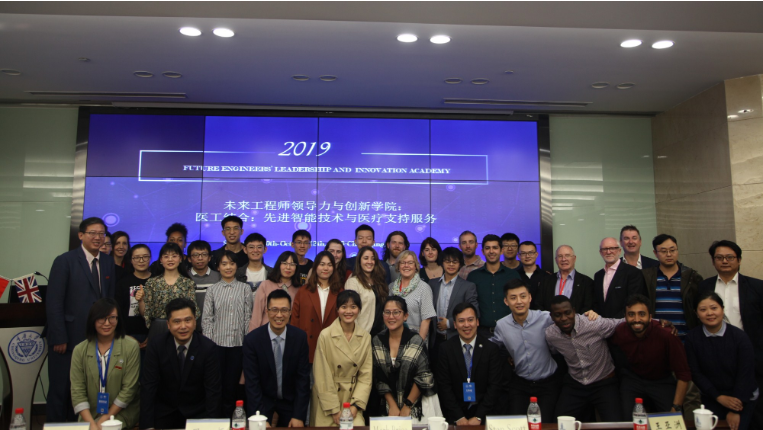
In the first week of the Program was the Mini-MBA course offered by the Queen’s University Belfast, which was based on interdisciplinary group cooperation. Case study was carried out based on the course content. The purpose of the course was to develop students’ ability to build up transnational teams and collaborate with team members to solve actual problems.
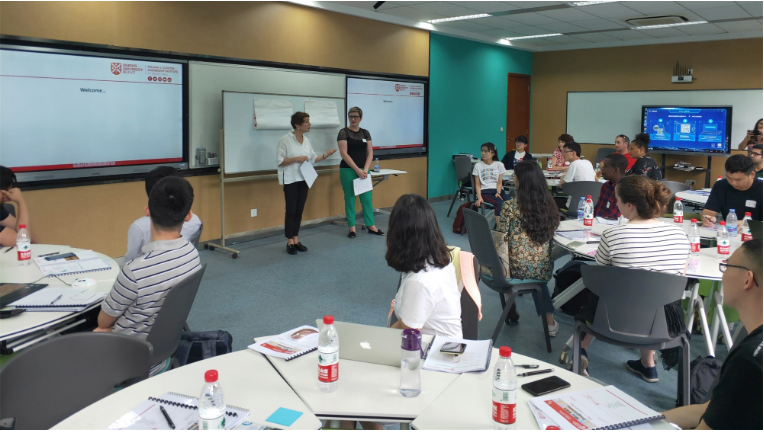
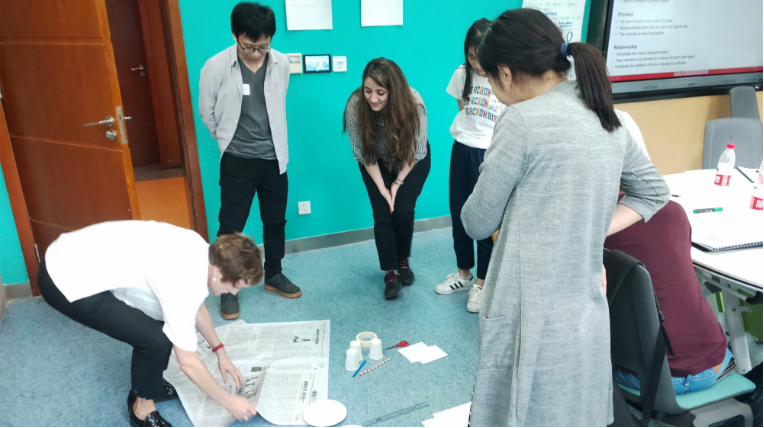
In the second week, the major course themed “a combination of medicine and engineering: advanced intelligent technology and medical support services” was delivered. The course was made up of three parts, namely, the lecture part, practical activity in the lab and medical visit and practice.
Lectures were delivered by professors of related areas from the Medical School, the School of Microelectronics and Communication Engineering, the School of Computer Science, the School of Big Data and Software Engineering, the School of Bioengineering, and the School of Electrical Engineering of Chongqing University. Courses included "key technologies for para-brain prediction and tracking of moving objects", "machine olfactory and bionic electronic nose", "organ intelligent segmentation and holographic 3D display and artificial assistant diagnosis", "hand function rehabilitation training and rehabilitation robot for intelligent wearing", "key technologies and equipment for nanosecond pulse electric field ablation of tumor", "key technologies and equipment for ultra-low brain MRI", etc.

The practical activities in the laboratory were designed by the research groups of Medical College, the School of Microelectronics and Communication Engineering, the School of Computer Science, the School of Big Data and Software Engineering, and the School of Electrical Engineering. The students were divided into six groups, and six interdisciplinary and integrated teaching teams were respectively established to guide the students to choose topics. Through teaching, theoretical discussion, experimental visit, design and operation, data collection and analysis, etc. guidance was provided for students of each group on topic selection and research. Through one week's theoretical study, team cooperation and practical operation, students were able to complete the construction process of brain like prediction and tracking of moving objects, bionic olfactory electronic nose from hardware to algorithm, intelligent segmentation and holographic 3D display of abdominal organs, intelligent wearable hand function rehabilitation training and rehabilitation robot, pulse electric field processing of cells and animals, magnetic resonance imaging, and nuclear Research on the design of RF coil and gradient coil for MRI, under guidance. In addition, reports have been generated and results presented.

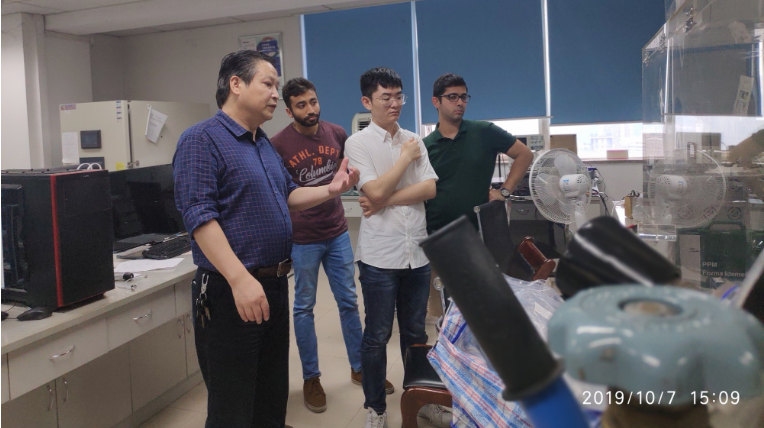
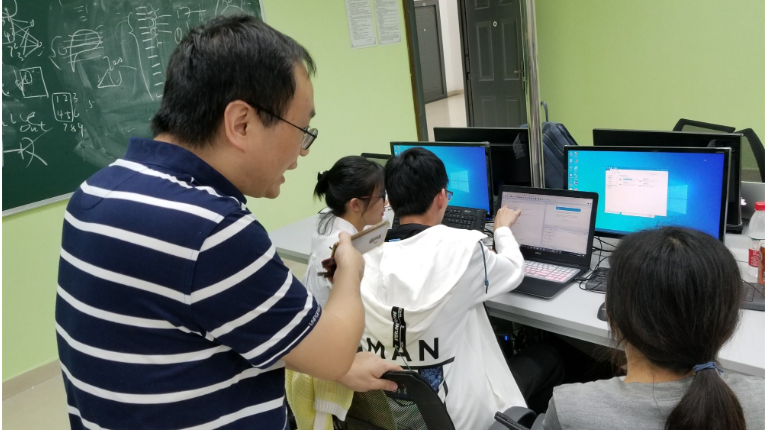

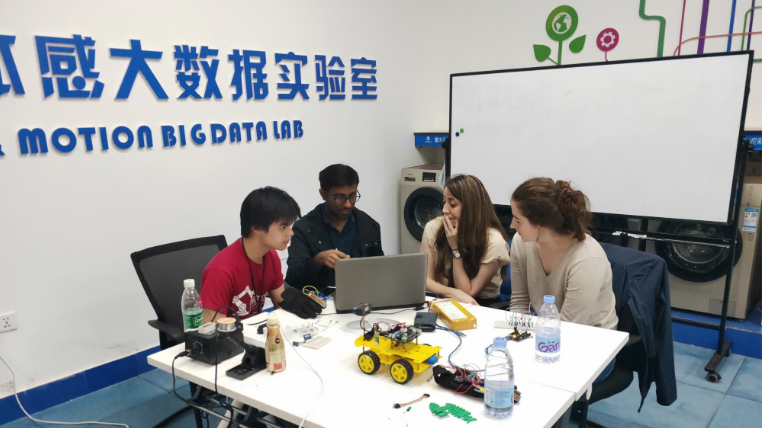
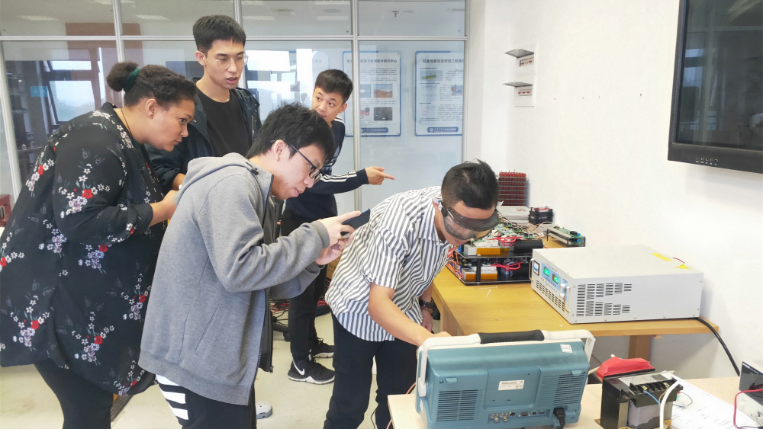
The medical visit and practice were conducted in the Affiliated Central Hospital of Chongqing University and the Chongqing Cancer Hospital. Chongqing Cancer Hospital arranged students to visit the imaging department, neurosurgery, etc., and explained the commissioning of the MRI system of the ambulance, and the operation of the mobile MRI equipment skull imaging in detail. In addition, they also took students to the Hospital's rescue helicopter apron and the 120 Dispatching and Command Center of Chongqing. Chongqing Cancer Hospital arranged a discussion and visit for the students. At the Symposium, Zhou Hong, vice president of Chongqing Cancer Hospital, introduced the students to the development of the hospital, the information construction of the hospital by the Ministry of Information, and the application of advanced medical equipment in the tumor treatment by the tumor radiotherapy center. Then they took the students to visit the Hospital's complex surgical operation platform, TOMO and PET-CT, the volume modulated arc radiotherapy linear accelerator VarianlX, the gyro rotary cobalt 60 radiotherapy machine and other advanced equipment.

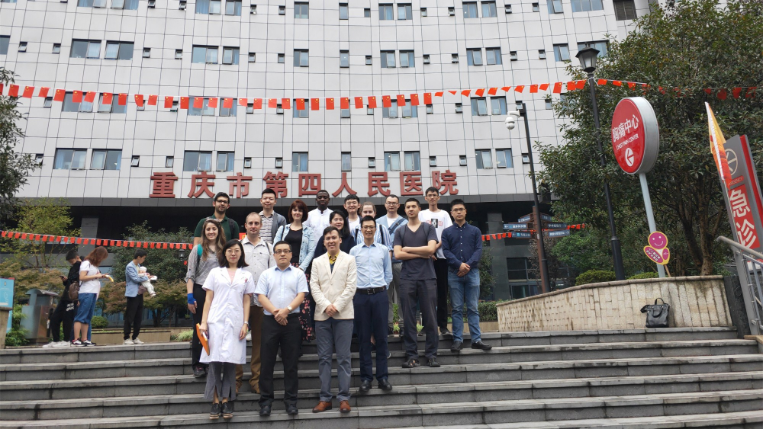
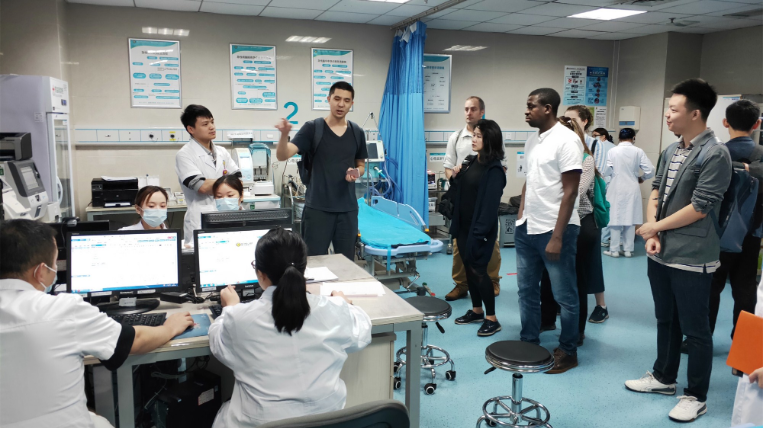
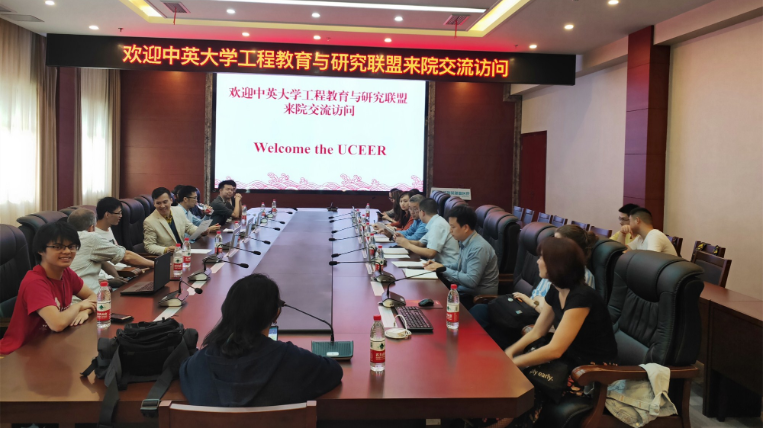

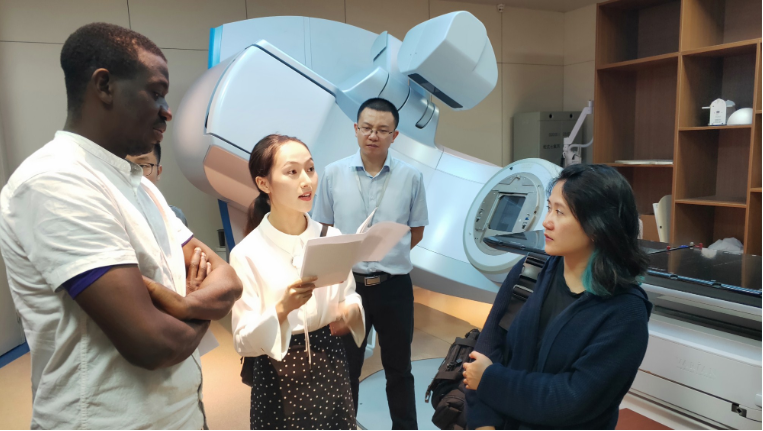
During the course, students were also organized to visit Dazu Stone Carving Scenic Spot, which is among the UNESCO's World Heritage List.

On the evening of October 11, the learning part was brought to an end and the course completion ceremony was held in the Main Teaching Building, Campus A, Chongqing University. Ming Ju, vice president of Chongqing University, Mark Price, vice-chancellor of Queen's University Belfast, PAM Thomas, vice chancellor of Warwick University, Xu Jun, director of the Office of International Cooperation and Exchange, Chongqing University, and Wang Yazhou, vice dean of Medical College of Chongqing University, attended the course completion ceremony. At the ceremony, Ming Ju delivered a closing speech. In his speech, he congratulated all the students who had successfully completed the FELIA course. He said that in just two weeks, students faced challenges from different disciplines and different cultural backgrounds, witnessed the demeanor of masters, and listened to lectures of famous teachers. They gained deep understanding of those topics and there was a shift from cultural self-consciousness to cultural integration. Outstanding doctoral students from all over the world became friends here. The intense and substantial courses not only enabled students to gain knowledge, but also laid a good foundation for their future overseas learning. Subsequently, each group reported the learning and research results during the Program, and presented the whole process from production to formation of creative ideas. Students have expressed that FELIA course combined theoretical learning, classroom practice and results reporting, and had effectively exercised their innovation, leadership and transnational communication and cooperation ability. It was a desirable learning and communication platform. Finally, the three vice presidents presented students with course completion certificates.
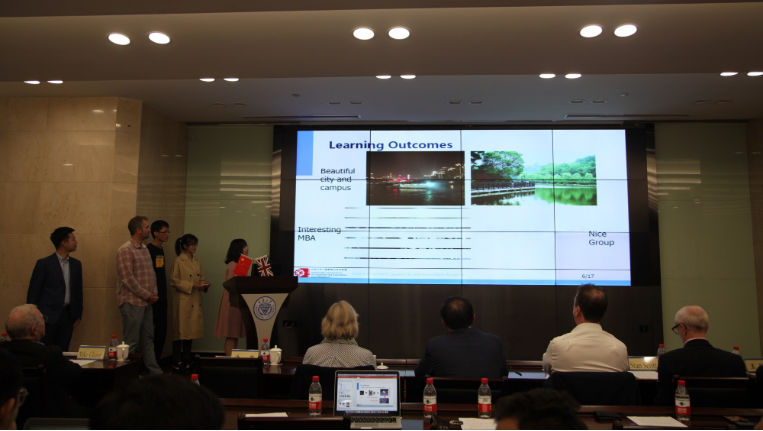
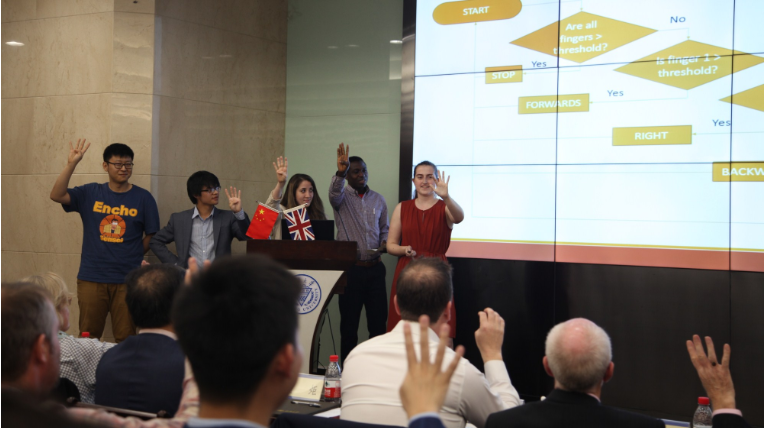

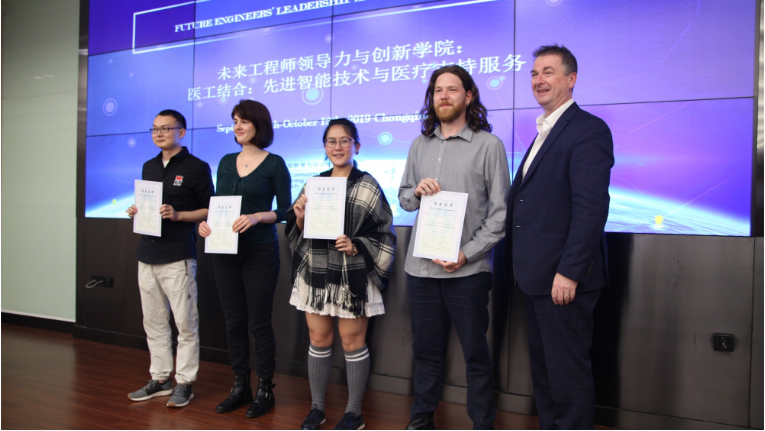
On October 12, students attended the 90th Anniversary events of Chongqing University as invited.
Attachment:
The Future Engineer Leadership and Innovation Academy is a doctoral program within the framework of University Consortium on Engineering Education and Research (see the profile below), and is the first short-term international research and study program on the doctoral level aimed to cultivate the future engineer leadership and innovation capacity. In addition, it is the first step taken by China and the UK in the engineering area in a bid to strengthen the high-level education and research cooperation between the two.
The University Consortium on Engineering Education and Research was founded in May 2017, and is made up of Chinese member universities of Excellence 9 expert in engineering and 9 British universities of the Russell Group. Its mission is to promote interdisciplinary cooperation, so as to improve the research and teaching quality in the engineering area and jointly cultivate leading talents in the engineering area.
Chinese members of the Consortium: Southeast University, Beijing Institute of Technology, Chongqing University, Dalian University of Technology, Harbin Institute of Technology, Northwestern Polytechnical University, South China University of Technology, Tianjin University and Tongji University. The Chinese Secretariat is seated at Southeast University.
British members of the Consortium: Queen's University Belfast, University of Birmingham, Cardiff University, University College London, University of Nottingham, Warwick University, Liverpool University, Leeds University and Cambridge University. The British Secretariat is seated at Queen's University Belfast.
